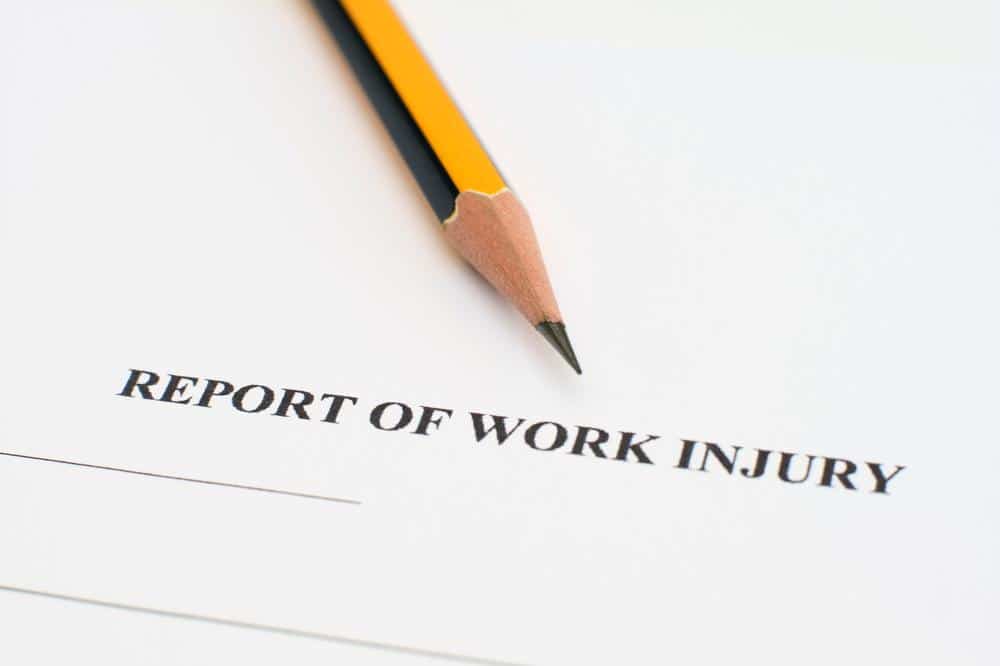To be eligible for workers’ compensation payments, both the employee and the employer must take specific steps to guarantee that the work injury is compensable. For example, when a person is hurt on the job or gets an occupational illness, it is usually deemed a workers’ compensation injury covered by your company’s insurance policy. Following a workers’ compensation injury, the employee may be eligible for medical care, pay replacement, and other benefits if the claim is approved. Filing a workers’ compensation claim for a workplace accident or sickness can be complicated since numerous parties are involved: the employee, the employer, the insurance company, the healthcare provider, and the state’s workers’ compensation board.
What Constitutes a Workplace Injury?
Workers’ compensation insurance covers most work injuries, including accidents and diseases caused by exposure to work activities, materials, and equipment.
Time is essential when an employee sustains an occupational accident covered by workers’ compensation insurance. The employee has a certain number of days to report the occurrence and claim benefits.
In most cases, injured workers should notify their employer as quickly as possible after suffering an occupational accident. If the work comp claim is not filed timely, the insurance provider may reject the employee compensation payments. The delay may also give your provider the idea that your claim is fraudulent.
Eligibility for Workers’ Compensation
If you file a workers’ comp claim, you must demonstrate the link between your work injury and your job. OSHA regulations consider a sickness or injury job-related if exposure or incident at work caused the condition or worsened an already-existing condition.
Making this link is usually straightforward for incidents occurring on the job site. However, making this link becomes considerably more challenging if a person is diagnosed with a disease such as mesothelioma, caused by exposure to asbestos, years later or experiences an accident while working outside the workplace, such as on a business trip.
You can also determine the connection between the kind of work injury or illness and your job. For example, proving that a woodworker acquired sinus cavity cancer due to their career or that a painter fell from a ladder while prepping to paint may be pretty straightforward. However, it may become more complicated if the ailment is one that many individuals develop during their lives, such as high blood pressure, heart disease, or lung cancer. Similarly, it may become more complex if your job is not inherently risky.
The laws for work injuries and illnesses are different in each state. For example, some states expressly prohibit claiming workers’ compensation for specific conditions. In addition, many people see particular occupations, such as emergency response, as inherently risky and assign these personnel specific titles.

Common Worker’s Compensation Injuries
Workers’ compensation covers a wide range of ailments. Some of the most prevalent, according to OSHA and the National Safety Council (NSC), are:
- Sprains, strains, and muscle tears
- Fractures of the bones
- Punctures, lacerations, and cuts
- Repetitive strain or stress injuries (RSIs) include carpal tunnel syndrome, tendinitis, and back discomfort.
- Falls, slips, and trips
OSHA also identifies the “fatal four” work injuries that most frequently result in workplace fatalities:
- Electrocution
- Crushing or being trapped between items
- Being hit by an item or piece of equipment
- Falls
Types of Work Injuries Excluded from Workers’ Compensation
Workers’ compensation may not cover all forms of a work injury. These injuries include incidents in which you or the person who caused you harm acted outside the scope of your work. In some instances, a personal injury lawyer may advise you to file a legal complaint against the individual who caused your injuries.
Examples of such scenarios include:
- When an employee who was inebriated or under the influence of drugs triggered the event.
- Stress or other mental illnesses
- Fighting or horseplay-related injuries
- The employee was involved in illegal activity.
- The employee had been drinking or using drugs.
- When the employee was injured, they were not working for the firm.
- The employee ignored safety regulations and business policy.
- One side purposefully caused harm to another.
Furthermore, workers’ compensation does not typically cover contractors or subcontractors, so if you are not an employee, an attorney may advise you to seek compensation directly from the liable party.
Third parties, such as a building owner, landowner, or equipment maker, may also be held liable in specific situations. Again, a workers’ compensation lawyer can assist you in determining the responsible party and the best course of action to take.

How to File a Work Comp Claim After a Work Injury
An employee must do the following to begin the claims process:
- Inform the employer of the work injury or illness (including the date, time, type of injury, and how the injury occurred)
- Make a formal workers’ compensation claim.
- The insurance company will then select a doctor to do an impartial medical evaluation.
- Finally, the doctor will transmit the findings to the insurance company, which will use the information to determine its compensation offer.
The workers’ compensation claims procedure and statute of limitations vary slightly in each state.
When Should You Submit a Workers’ Compensation Claim?
If all of the following assertions are true, your employee is qualified for workers’ compensation benefits:
- The injured employee works for your business and is not an independent contractor.
- The employer provides workers’ compensation coverage.
- The individual was injured as a result of job-related responsibilities.
What is the Deadline in Missouri to File a Work Injury Claim?
Depending on the incident’s state, your workers have a precise deadline to make a claim. The deadline may vary depending on the type of injury. In Missouri, the general statute of limitations is five years from the date of injury under Section 516.120 of the Revised Missouri Statutes. Employees have deadlines for reporting injuries to their employers. The employee must notify the employer of the work injury within 30 to 45 days in most circumstances. Employees in Missouri, for example, who fail to tell their employer about injuries within 30 days may be denied workers’ compensation payments. To be safe, always request an injured employee provide written notification of the occurrence outlining the nature of the sickness or work injury and when, how, and where it occurred.

Protecting Your Staff and Your Business
Workers’ compensation insurance is critical to protect your staff and your business. By showing your employees that you care about their well-being and are willing to invest in coverage, you demonstrate the importance of each team member. Additionally, this type of insurance can help keep your business running smoothly if an employee becomes ill or has a work injury. Contact Missouri Work Comp Specialists today to get a group or individual coverage work comp quote. We would be happy to help!
